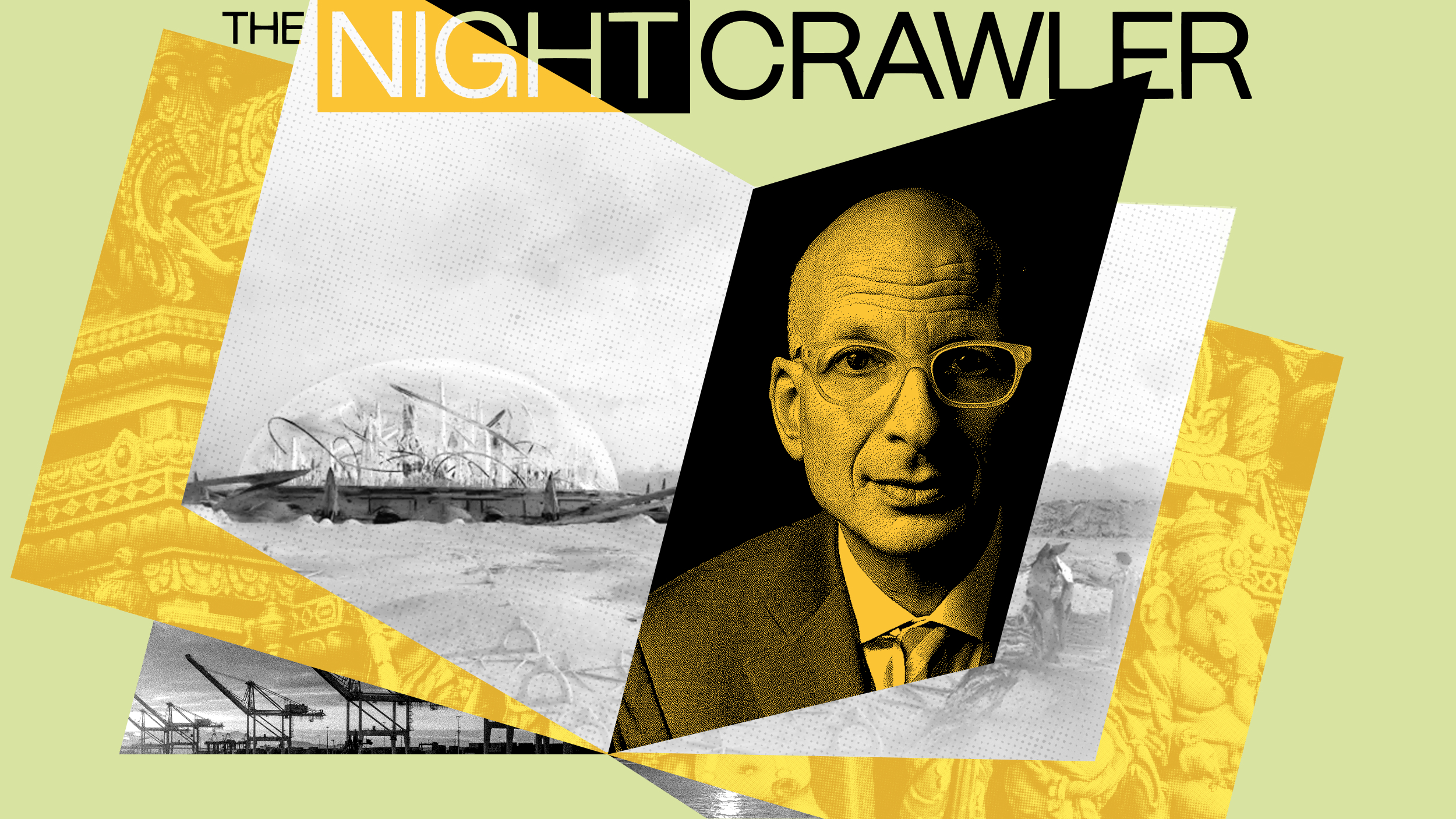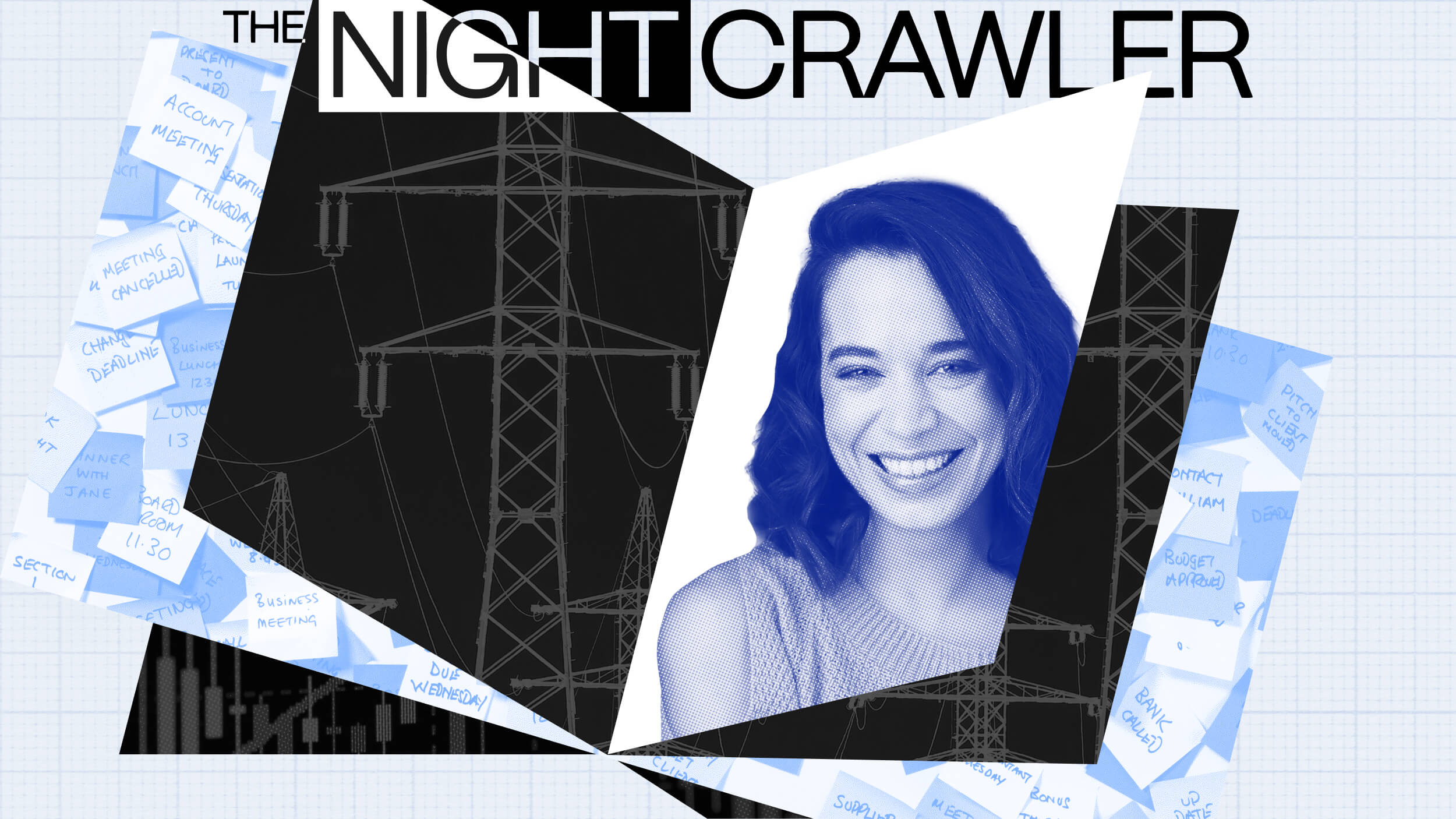The Gustav Söderström interview: Spotify and the psychology of taste

- The tech business landscape is defined by multiple waves of disruption and adaptation.
- “Nowadays, it’s all about anticipating the next big shift,” says Söderström.
- Musical taste is not static — and “the value of Spotify is correlated to how many new things you discover.”
Gustav Söderström joined Spotify at a seminal moment in the company’s history, coordinating the 2009 launch of its mobile app, which currently has over 675 million active users. Now, he’s venturing into uncharted territory once again, overseeing a series of redesigns intended to help his global team navigate a changing digital media landscape shaped by TikTok and generative AI.
Leading the music streaming market with a 31.7% share, Spotify is shifting its priorities from subscriber growth to profit — a goal Söderström, serving as Co-President, Chief Product Officer & Chief Technology Officer, aims to accomplish by improving user experience with better UI and recommendations.
Joining Big Think over Zoom from the studio where he hosts Spotify’s own, in-house podcast, A Product Story, Söderström explains that reaching this goal not only requires technical expertise, but also a familiarity with basic psychology: the psychology of music taste and, more broadly, openness to new experiences — a topic near and dear to his heart.
Big Think: You have written that your philosophy in life is that “change always happens,” that it’s not an event but a constant state, and that humans are bad at accepting this fact. How did you come to that understanding?
Söderström: I remember hearing the first person to accept and adapt “wins.” I think it depends on the type of change, but when it comes to macro shifts, resisting doesn’t make sense. Whether it’s your business model or your personal life, adjusting early helps you come out on the right side of things.
Big Think: If that’s true, why do we often struggle with it?
Söderström: My best guess is that it’s biological. Change used to happen slowly, over hundreds or thousands of years, so that you could spend the first few years of your life “training” your mental model of the world and apply that for the remainder of your life because the world changed so little. To use a machine learning analogy: you had a long training phase, followed by a lifetime of inference.

Because 99.9% of evolution took place in an environment where very little changed within a single lifetime, we still have that “cut-off date” hardwired into us. It’s not impossible to learn, but our instinct is to resist.
Big Think: Sounds like a useful philosophy in the business world, where achieving market dominance through innovation risks giving way to complacency.
Söderström: It’s the same argument — the world used to change more slowly. In the early days of computing, companies believed the world was static because their business models lasted for decades. Nowadays, it’s all about anticipating the next big shift.
Traditionally, technological innovation — computers, smartphones, etc. — disrupts, new business models emerge, and the industry settles into a new, steady state. Companies like Amazon and Google bucked this trend. They have not only survived but thrived through multiple waves of disruption and adaptation.
Big Think: Spotify is headquartered in Stockholm, a major European hub for innovative technology and venture capital. How did the city come to be this way?
Söderström: Sweden is sort of the Silicon Valley of music, home to producers like Denniz Pop and Max Martin. They took on apprentices and built an entire cottage industry of music production. During the 90s, the government also subsidized investments in broadband with its “PCs for everyone” program, making Sweden one of the first countries get super-high bandwidth. Spotify happening in Sweden is thus not as surprising as it looks from the outside.
There’s definitely a distinct Swedish company culture. Swedes are known for being consensus-driven. Decisions are often made in a circle, with the leader being just another person in the discussion. Compare that to American corporate culture, which follows more of a star pattern with clear hierarchies. There are benefits to the Swedish approach, but it can also slow things down. Sometimes, you can’t reach a consensus.
In my view there is no “right” way of doing things. Apple is a matrix organization that releases a single thing, Amazon a collection of synchronized “two-pizza teams” where everyone runs as fast as they can and ships directly to the consumer, but both are trillion-dollar companies.
Various experiments — like one conducted at Stanford, where people were exposed to different types of music — indicate taste is socially driven.
Big Think: You host the podcast A Product Story, where you interview various entrepreneurs, computer scientists, and musicians — including Metallica drummer Lars Ulrich, Napster founder Sean Parker, and Spotify’s own CEO, Daniel Ek. Are there any valuable business lessons you’ve learned through podcasting?
Söderström: The podcast started internally. I was a podcast listener myself and felt we should have empathy for creators, and wanted to avoid the trap of company management getting too distant from employees. Because it started out as an internal thing, I could talk about “secret” stuff, like company strategies.
After a while we went external so people who didn’t work at Spotify could listen along as well. It proved to be a useful way of recruiting talent, but also remained a way to recognize the work of specific employees — not just executives. Preparing the episodes, we tried to apply strategic frameworks like Daniel Kahneman’s prospect theory and the “Seven Powers,” and see how they might fit with our company.
Big Think: Has your work at Spotify over the years led to any interesting discoveries about people’s tastes in music?
Söderström: Since we are still primarily a music streaming service, this remains the most important question for us. One of the first things we learned is that you can think about taste as either innate or acquired — nature versus nurture. Is it something in your genes, and we just need to find it, or does it change? If so, does it change based on what you hear, or what those around you are listening to?
Various experiments — like one conducted at Stanford, where people were exposed to different types of music — indicate taste is socially driven. At Spotify, we therefore thought of it as a search problem: find your taste, and exploit it. But that assumes your taste never evolves, which isn’t true.
When Spotify started, it seemed as though taste was constant: people listening to the same music they listened to when they were younger. That may have been true in the past, but with Spotify — because there was no marginal cost to listen to a new song — even users over 40 began to eventually explore new styles and genres.
So it turns out taste wasn’t static, after all. It was just that, in the world of marginal costs — i.e. paying $1 per track on iTunes or a pirate website — most people didn’t have enough time, energy or money to keep exploring. This changed when things got cheaper, and when we were able to use algorithms to recommend songs similar to the ones you already liked, even if your taste was narrow.
Big Think: But, as you said, change is not an event. It is a constant state.
Söderström: Exactly. A few years later, the next problem emerged: what happens when someone becomes bored of their own taste, feels trapped in their own bubble? That’s what we’re trying to solve now, and we’ve evolved the UI and features a lot to help you find specific channels when you’re bored. Like our AI DJ, which not only recommends new songs, but also provides important context — “This song is trending in the US right now” — to help people understand this unfamiliar thing they’re listening to.
Expanding your taste is different from finding new music in your favorite genre. If you listen to a lot of indie music, we have high confidence that suggesting another indie track won’t be a “WTF moment” for you. But what if we suggest reggaeton? Because it’s so different, the hit rate will be lower.
This means we need an interface that allows you to quickly examine multiple candidates — we call them “Watch Feeds,” and you can think of them like TikTok. Finding one gem in 10 or 20 quick succession tries is great. By comparison, if you find only good song in a traditional Spotify playlist, and the rest are all bad, you’re going to think we suck.
What happens when someone becomes bored of their own taste, feels trapped in their own bubble? That’s what we’re trying to solve now.
Big Think: Do you necessarily have to understand where data patterns come from in order to make use of them?
Söderström: It’s a tricky question. If you take that approach to the extreme, you end up with a black-box type of thing — we’re going to A/B test, and even though we understand why something works, if it does, we’ll ship it.” I’m not a fan of that approach. I always try to get teams to reason backwards — “OK, but now we need a theory about why this works.” Because if you figure that out, you can build an even better system or simply use it in a more informed way.
Big Think: Speaking to The Verge in 2023, you discussed the potential of boosting smaller, undiscovered creators on the platform. Sounds like a symbiotic relationship — Spotify listeners expand their tastes, and creators can find an audience.
Söderström: Right. Platforms like TikTok are pushing new content constantly. It’s the same for us. While there’s a higher probability of you liking songs, podcasts or audiobooks that are similar to the ones you’ve already listened to before, we always prefer recommending something new because we think that, in your brain, the value of Spotify is correlated to how many new things you discover, and we have data showing that the number of discoveries is correlated with retention.
The problem is that if you rely on organic consumption to discover new things, it’s going to take a long time, especially if users aren’t naturally exploratory. So we try be proactive: seek out certain user groups and try new, less popular music with them. This helps to keep the creative community healthy, and if you look at our numbers, it’s working. The share of music coming from indie labels is growing quite significantly. We just can’t rely 100% on other sources like friends or TikTok feeds to expand your taste, so we’re trying really hard to make sure Spotify is a destination where you can go explore new music effectively.





